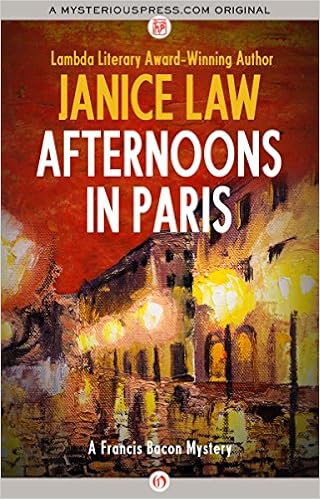I am not a lawyer, accountant, or literary agent, but I do think that seven years working in the trenches of a children’s math magazine at Scholastic taught me a skill that is apparently lost on the accounts payable clerks who toil for two different literary agents that I will not identify: I know how to multiply a gross figure by a decimal and calculate exactly how much to send me, the freaking author.
Maybe you don’t have such problems. You are blessed with an earnest, hardworking, bookish agent who throws her heart and soul into repping you. Her only fault is that she’s a one-woman agency, somewhat scattered, and your royalty checks and statements routinely reach you about 90 days after the publisher sent them to her. Earning interest in Cat Lady’s account, in other words, and not yours.
Or maybe your agent is a crook or employs a felonious bookkeeper.
The remedy for all this is a beautiful word with Latin roots: bifurcation. That means the publisher pays each of you your share of the royalties directly, without mingling your cashola with the agent’s.
Two minutes of research reveals that in the Devonian epoch, publishers directly paid writers, who were then responsible for paying their agents. That arrangement was altered in the Pleistocene, when it was decreed that writers could not be trusted with Other People’s Money and that agents were infinitely more trustworthy.
Moreover, when checks, royalty statements, annual tax statements, and currency itself had to be hand-chiseled on stone tablets, it was so much easier for the publisher to send a giant wad of money to, say, sixteen agents, and let them dole out minuscule amounts to the respective writers. Relieved that of that onerous paperwork (and the associated labor costs), publishers could get on with the rarefied work of curation.
But OMG, guys! Have you heard? Funds can now be electronically electroned to the money store of your choice, so why not bifurcate? It’s the smart thing to do.
I have ghostwritten a number of books for business people, many of whom instructed their literary agent to enact bifurcation on Day 1. It’s what you do in the “real” world of business. To people who think seriously about money, publishing’s financial traditions appear quite dumb.
In one email that I probably should not have received, the literary agent chided her client—the fellow whose book I was writing—saying bifurcation was fine to do with domestic (ie, US) contracts, but would be somewhat more complicated with foreign rights. She was only half right. It can be tricky. If I were doing a foreign deal today, I’d try to bifurcate, but for the purposes of this article, I’m going to focus on bifurcating payments on domestic royalties.
 |
| I took the fork most traveled by... |
Why would you want to bifurcate? First, because the money owed to writers goes missing all the time. The most egregious case is the one involving the literary agency that represented Fight Club author Chuck Palahniuk, not to mention the estates of Edward Gorey, Mario Puzo, Peter Matthiessen, Joseph Heller, Studs Terkel, and many more. The firm’s bookkeeper embezzled $3.4 million over seven years. Apologizing profusely to their clients, the principals of the firm watched as their weeping former employee was sentenced to two years in prison, then filed for bankruptcy. By all accounts, a respectable firm ground into the dust by greed.
Second, I’d bifurcate because one writer’s personal stash of dead-wood agents can quickly pile up like cordwood. I’m a mid-lister at best, yet in my career, my money has flowed to the offices of a total of six literary agents. Back in the day, I befriended a scrappy young agent who landed me a few book deals. He departed for a new firm, still agreeing to rep me but leaving his former employer responsible for paying me royalties on my “old” projects. When another agent of mine left her longtime agency, she and her longtime employer decided to split my rights between them. (No one bothered to ask what I wanted to do.) The dead-wood agency would send me royalties on my US rights, and “my” agent would rep my foreign and all other subsidiary rights.
It was nuts. At one point, I was getting checks from four different agencies, but only firm one repped me for reals. The others were, as I say, dead wood.
Talk about scary: At one firm, the longtime principals had retired, entrusting the distribution of royalty checks to—who else?—their progeny and grandchildren. At another firm, when the two principals began suing each other, they at least had the decency to teach their clients the B-word.
It was a tedious process, bifurcating payments with every print and audiobook publisher with whom my wife and I had ever signed a deal with. We set up bifurcations with Macmillan, Simon & Schuster, Penguin Random House, Audible, and Brilliance Audio. We got good at it, and once we were done bifurcating with our LIVE agents, I moved on to prune the dead wood.
Here’s what you do:
Get out copies of all the contracts you have with a single publisher. To make this easy on yourself, just deal with the publishers in your nation of residence to start. In other words, money that is coming from a US publisher to you, a US writer. If you’re a Canadian writer, you have my permission to bifurcate from your US agent and your US publisher. That transaction should go smoothly. But I’m neither a lawyer or accountant (as noted above).
At the top of your most recent royalty statement you will find the contact info of your publisher’s royalties department. On your royalty statements, you will see that your publisher has reduced you to a number. Write down your official author number, and fire off an email to this effect:
I’d like to bifurcate the following contracts—noted here by date, name of book, etc. My agent of record, noted in Paragraph Whatever, is Eustace Simoleons, of the Rackhamup Simoleons Literary Agency. The split-share on each of the birfucations should be 85 percent to me, the author, and 15 percent to the aged yet highly esteemed Mr. Simoleons. Mr. S and his numbskull assistant are cc’d on this email.
Note: If you have contracts at the same publisher that involve another agent, you’ll have to go down that route too.
Since they are no longer having to chisel money out of stone, I have found that royalty department drones have free time on their hands, and will most likely respond quickly: “Wow, a human wants to talk to us! Thank you for writing, Scribulous J. Scrivener! We’d love to help you set up that bifurcation, but Mr. Simoleons must assent before we proceed.”
Numbskull assistant will prod Mr. Simoleons to respond. If he’s still quite sagacious, Mr. S. will instantly comprehend that you have handed him a reason to reduce the annual hours paid to said nitwit. (“Sh*t—if I can get all my authors to do this, I might be able to fire my idiot assistants and drop payroll,” he will think, albeit privately to himself.)
If, on the other hand, Mr. Simoleons is shady or neurotic, he will phone to convince you that it’s in your favor to let him (man)handle your money. Hold firm. Say it’s a business thing, and you’re happy to get your attorney involved if it would make him feel more comfortable. (Only say this if you are not bluffing.) When you surmount that hurdle, the royalty department will send you a contract addendum like this:
We refer to the agreement (the “Contract”) dated TK, between Scribulous J. Scrivener (the “Author”), and Edified Press, at 123 Highly Overpriced Office Towers, NYC, (“the Publisher”), concerning BOOK TITLE (the “Work”).
It is hereby agreed as follows:
- Paragraph TK of the Agreement—(ie, the so-called Literary Agency clause) is hereby deleted in its entirety and replaced with the following:
- “Fifteen percent (15%) sums due Author under this Agreement shall be paid to the Author’s agent: Eustace Simoleons, Agency name and address (the “Agent”), whose receipt of funds shall be a full and valid discharge of Publisher’s obligations.
- “Eighty-five percent (85%) of all sums due the Author under this Agreement will be paid directly to the Author at: Scrivener’s address. Receipt of those funds shall be a full and valid discharge of Publisher’s obligations.”
Nothing in these two paragraphs will be deemed to have changed the amounts otherwise payable by the Publisher under this Agreement. In all other respects the Agreement remains in full force and effect in accordance with its terms.
ACCEPTED AND AGREED:
Signed by Publisher
Signed by Author
Yes, you can get a lawyer to look at this, but I would recommend having the publisher draw up the doc first, so you don't incur excessive legal expenses on consultations with your attorney and their subsequent drafting of the doc. The agent is not required to sign, because the original contract was always between you, the author, and the publisher, with only one graf inserted to redirect your money to the agent.
You will need to execute this document for every book you have at this publisher, and at every other publisher that brings your work to market. You’ll do it for all the the other businesses that have signed subsidiary deals with you.
Not gonna lie to you. It will take time. While you’re at it, instruct the publisher to set up direct deposit as well, and agree to receive your royalty statements via email or their online royalty portal. The documents you sign today probably will not impact your royalty statements or payments for a year. Because publishing.
Once the new agreements start kicking in, however, you’ll forever get your 85 percent and the agent will get their 15 percent. At the end of the year, the publisher (not the agent) will send you your tax docs. Yay you!
From this moment forward, I predict that you will never hear from your dead-wood agents again, just the ones continuing to rep you. Although, because these idiots really cannot do math with decimals, you may occasionally get a check in the mail remitting you 85 percent of an agent’s 15 percent payment. (Yes, this has happened to me with two agents’ offices, several freaking times in a row.)
Once, I got an anxious call from the scion of a once-great literary agency who said, “Um, we just got a call from someone in Bulgaria who wants to do a deal with your book? Can you handle it?” (Translation: “Please don’t make us have to work after all these years of cashing grandpa’s checks.”)
JFC, publishing is stupid, but you don’t have to be. Bifurcate.
See you in three weeks.
— Joe
josephdagnese.com














 No, not that one, this one:
No, not that one, this one: 












